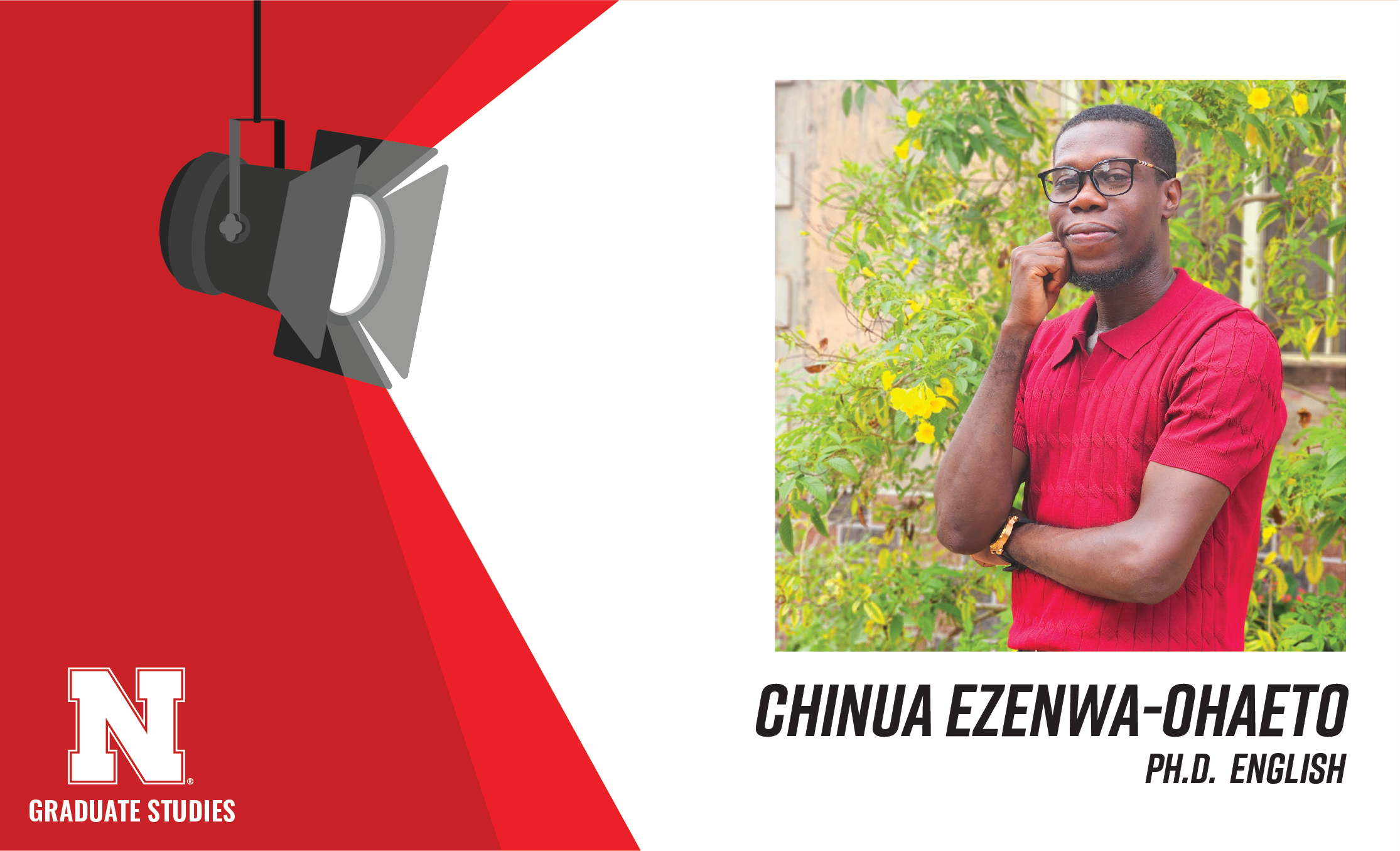
Chinua Ezenwa-Ohaeto is a Ph.D. student in English at UNL with a focus on creative writing (poetry). A winner of many notable awards including the Castello di Duino Poesia Prize, the Eriata Oribhabor Poetry Prize (EOPP), recipient of New Hampshire Institute of Art’s Writing Award, and the New Hampshire Institute of Art’s scholarship to the MFA Program. In 2019, he won the Sevhage/Angus Poetry Prize. He has also won the first prize in the Creators of Justice Literary Award, poetry category, organized by the International Human Rights Art Festival in New York in 2020.
He has a chapbook, The Teenager Who Became My Mother (Sevhage Publishers, 2020.
His works have appeared in Isele Magazine, Poety Ireland Review, Oxford Poetry, Massachusetts Review, Frontier, Palette, The Common, Southword Magazine, Colorado Review, Mud Season Review, Notra Dame, Anmly, The Republic Journal , Up the Staircase Quarterly, Ruminate, and elsewhere.
Chinua Ezenwa-Ohaeto's full-length poetry manuscript titled, The Naming, edited by Prof. Kwame Dawes will be published by African Poetry Book Fund via Nebraska Press in fall of 2025.
The poetry collection explores the movements, excesses, and extremeness of existing as a postmodern individual, connecting these experiences to familial ancestry. The poems in the collection examine the various ways one is tied to their ancestors by reimagining memories, history, homestead, migration, and the intersection of the past, present, and possible future. Through this exploration, the collection seeks to rebuild a world that doesn’t just replicate realities but re-invent, enshrine, and re-story them.
Chinua Ezenwa-Ohaeto has recently undertaken two significant research projects. The first explores themes of exile, unbelonging, home, religion, political injustices, cultural identities, and the intricate complexities of African societies through a close examination of select poetry collections. This research highlights how African poets navigate and articulate these deeply interconnected issues.
The second project focuses on 20th-century Nigerian poetry, specifically examining the historical realities of Nigerian women poets. This study examines the groundbreaking contributions of poets such as Flora Nwapa, Abiodun Omolara Ogundipe, Hafsat Abdulwaheed, Catherine Obianuju Acholonu, Mabel Segun, and others. Their work, often produced in a context where their voices were marginalized, represents a pivotal shift in Nigerian literary history and a testament to their resilience and creativity.
His dissertation delves into his Igbo lineage, exploring the concepts of Chi, Agwu, and Dibia Afa within Igbo cosmology and their intersections with spirituality and modernity. It further examines how these indigenous beliefs interact with other religious systems, while also addressing related themes such as migration, exile, and unbelonging.
Working with Professor Kwame Dawes has been an extraordinary journey of learning and growth Chinua recounts. As his advisor, supervisor, and teacher, he has illuminated the profound connection between poetry and history, showing him how the past breathes life into the present. He says the mentorship of Professor Dawes has sharpened his craft, deepened his understanding of storytelling, and taught him to embrace complexity with grace. With his guidance, he learned that poetry isn’t just art—it’s an archive, a bridge, and a timeless dialogue.
One of Chinua's proudest moments was having a poetry manuscript which attracted two publishing companies. A hard choice he had to make. It was a realization that his works were being recognized and appreciated.
He is grateful for being alive, for the opportunities he has received from UNL and friends, and hopes that people would have the understanding to recognize and avoid the dangers of a single story and hatred. And that humanity demands from us all the gifts of sharing, fairness and love.